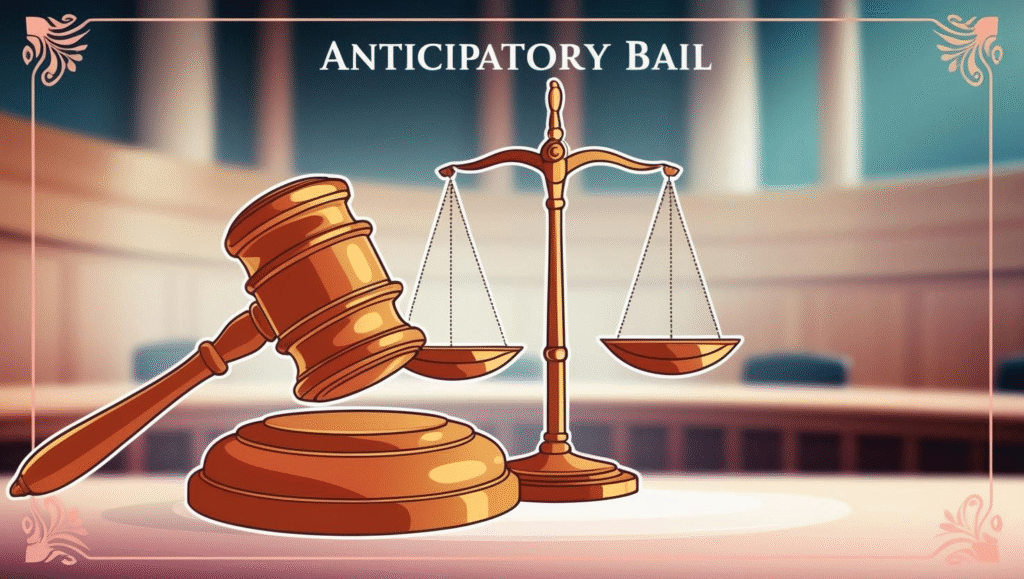
Anticipatory bail, often referred to as pre-arrest bail, is a legal remedy under Section 482 of BNSS. It allows individuals who anticipate arrest on charges of a non-bailable offense to approach the High Court or Sessions Court for bail before the actual arrest occurs. This provision is particularly significant for those facing the possibility of false allegations or malicious prosecution.
Anticipatory bail is a preventive relief provided by courts to individuals who have reason to believe they may be arrested for committing a non-bailable offence. Under BNSS, anticipatory bail serves as a safeguard against undue harassment and aims to balance the interests of justice and personal liberty.
This provision, previously encapsulated under Section 438 of the Criminal Procedure Code (CrPC), 1973, now finds its place under Section 482 of BNSS. It empowers the High Court and the Court of Session to grant pre-arrest bail with specific conditions tailored to prevent the misuse of liberty.
What are the Conditions for Anticipatory Bail?
- To apply for pre-arrest bail, the person has to file an application in the High Court or the Sessions Court.
- The application should state the reasons for seeking pre-arrest bail and provide any evidence to support the claim.
- After evaluating the merit of the application, the Court may grant the bail on the following conditions:
- The accused must be available whenever s/he is called for interrogation by a Police Officer(s).
- After the accused files for Anticipatory Bail, the opposing party must be notified about the same. The opposition can also contest the bail application in the same Court. Moreover, the opposing party may seek the help of a Public Prosecutor for the purpose.
- The accused must not directly or indirectly persuade, induce, promise, or threaten anyone associated with the case to refrain from disclosing facts pertaining to the case to either the concerned Court or Police Officer(s).
- The accused must not leave India without taking prior permission from the High Court or Sessions Court.
- Anticipatory Bails can be issued only by the High Court of a state or Sessions Court. It empowers the accused to seek a reprieve from arrest.
- So, if the court grants pre-arrest bail, the person can avoid being arrested and can continue to be at liberty. And the bail is usually granted with certain conditions such as providing a surety or personal bond, surrendering the passport, reporting to the police station, and refraining from tampering with evidence or influencing witnesses.
Application and Forum (Section 482(1))
An individual can apply for anticipatory bail under BNSS if they have a genuine apprehension of arrest for a non-bailable offence. The application for anticipatory bail can be made to:
- The High Court, or
- The Court of Session.
The courts have the authority to direct that the applicant be released on bail in the event of arrest, subject to specific conditions to ensure compliance with legal processes.
Conditions for Granting Anticipatory Bail (Section 482(2))
- The applicant must make themselves available for police interrogation as required.
- They must not, directly or indirectly,
- Induce,
- Threaten, or
- Promise any person related to the case to influence their testimony.
- The applicant must not leave India without prior court permission.
- Additional conditions may be imposed as per the provisions under Section 480(3) of BNSS.
Consequences of Granting Anticipatory Bail (Section 482(3)
Anticipatory bail is granted, if the accused is subsequently arrested without a warrant, they shall be released on bail, provided they are willing to furnish the necessary bail bonds. Furthermore, if the Magistrate decides to issue a warrant, it shall be a bailable warrant in accordance with the court’s directions.
Exceptions to Anticipatory Bail (Section 482(4))
- Section 65: Punishment for rape in certain cases.
- Section 70(2): Gang rape of a woman under 18 years of age.
Eligibility for Pre-arrest Bail
- Any Indian citizen accused of a cognizable or non-cognizable offence and expecting arrest can approach a Sessions Court or High Court to get an Anticipatory Bail.
- Generally, people apply for Anticipatory Bail when they believe that they have been falsely implicated in a case or have been subject to trumped-up charges and might get arrested.
- For example, the charges might be because of enmity with someone or on account of a false case. If the Court sees merit in the application, it may direct the concerned authorities to release the applicant on bail in the event of an arrest.
- It is important to note that pre-arrest bail is not a guarantee that the person will not be arrested. The police can still arrest the person if they violate the conditions of the bail or if new evidence comes to light. However, pre-arrest bail provides some relief to the individual and protects their liberty until the court decides on the case.
Cancellation of Anticipatory Bail
Anticipatory bail granted under BNSS can be cancelled under Section 483(3) in cases where the accused:
- Violates bail conditions.
- Attempts to influence witnesses.
- Commits additional offences while on bail.
The courts retain the discretion to revoke anticipatory bail based on evolving case circumstances.
Judicial Precedents on Anticipatory Bail
landmark cases have established the constitutional validity and scope of anticipatory bail, linking it to Article 21 of the Constitution, which guarantees the right to life and personal liberty.
- Sangeeta Bhatia v. State of NCT of Delhi (2022): Affirmed anticipatory bail as a statutory right.
- Tarun Jain v. Directorate General of GST Intelligence (2021): Reinforced its connection with Article 21.
- Bhadresh Bipinbhai Sheth v. State of Gujarat (2015): Clarified anticipatory bail’s alignment with personal liberty.
- Gurbaksh Singh Sibbia v. State of Punjab (1980): Established that Section 438 CrPC must adhere to Article 21’s fairness standards.
